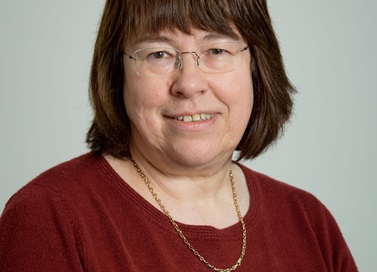Beast from the East vs RCPsych
20 March, 2018
I've learnt three things in the past few weeks.
Conferences are like buses - they all come along at once; prisons are fascinating, and our members are doing great work there, even in difficult conditions - but I don't want to be in one; and, as much as I hate to admit this, it turns out that the tube really does come in handy in a blizzard.
My first conference was the Forensic Faculty’s annual meeting. Despite the Beast from the East attempting its worse everything went smoothly in Nottingham thanks to the excellent work of Pamela Taylor, Chair of the Forensic Faculty, and her team.
I was particularly interested in a talk about prisons but pictures of cells made me determined not to end up in one.
Next for me was a journey back to London during “Storm Emma”.After complaining endlessly about the unreliability, the heat and the crowds of the London tube since I have been spending so much time in the capital I have to concede that in snow it comes into its own.
Fostering European links
Then it was over the Channel to Nice for the European Psychiatric Association (EPA) meeting. Don’t be too jealous.
Although Nice was free of snow, it was cold, wet and miserable. Luckily the company wasn’t!
I caught up with the Presidents of other Psychiatric organisations and was able to compare how we practice.
I’m conscious that now more than ever, it is essential to foster European links wherever we can.
Lessons from Europe
I also heard about the first “Massive Open Online Course” (MOOC) the EPA is set to launch, an introduction to Cognitive Behavioural Therapy.
This free online course will be open to an unlimited number of participants, and available in open access via the web.
The MOOC will provide course materials such as mini-lecture videos and recommended readings, as well as interactive user forums.You can sign up to the MOOC: it starts on Monday 9 April.
MindEd for Older People
Nice to Newcastle was next for the Old Age Faulty meeting. I spoke on International Women’s Day and was introduced by Amanda Thompsell, who is doing a great job as Chair of the Faculty.
I was able to show a sneak preview of MindEd for Older People which launches on 28 March.
This is an online resource with advice and guidance aimed at older people with mental health difficulties (other than dementia) and their families.
The two Faculty conferences gave me a chance to catch up with members. The overwhelming messages to me were how hard it is on the frontline and how desperately we need more funding and a larger workforce.
Back at the College the staff and members have been working to make progress on both these issues.Campaigning College
The HEE mental health workforce plan committed to an extra 100 consultant CAMHS psychiatrists by 2021, this is the number needed to deliver the Five Year Forward View.
Although the pilot run through training programme in CAMHs has increased recruitment dramatically we can’t train enough Consultants to meet this target, especially given a 6.3 per cent drop in the number of specialist child psychiatrists in the last four years.So we have been pressing the government to add CAMHS consultants to the shortage occupation list to enable us to recruit from overseas more easily.
Without more CAMHS psychiatrists, we are worried that it will not be possible to deliver the potential benefits within the recent government green paper on children and young people’s mental health, particularly a four week waiting time target. We also performed an analysis of the money going to Mental Health Trusts over the past few years.You won’t be surprised to learn that this research showed that Mental Health Trust income is lower now than it was in 2011/12.
NHS England were eager to respond to these findings and to assure us that this is changing, that we have turned the corner, and that things will improve.
I really hope that this is true.“Allocated money must be spent on mental health”
RCPsych has and continues to support NHSE England in its role in implementing the Five Year Forward View for Mental Health.
But to do this we need to ensure that every penny of the extra money allocated for mental health is spent on our services.
We need to be able to track the money to the frontline far more clearly so that we can hold commissioners to account for how they allocate funding. At the moment this is very difficult to do and we are calling for a more transparent system.
The College will be watching the money carefully in the months to come and will be holding the government to account if things don’t change for the better.

